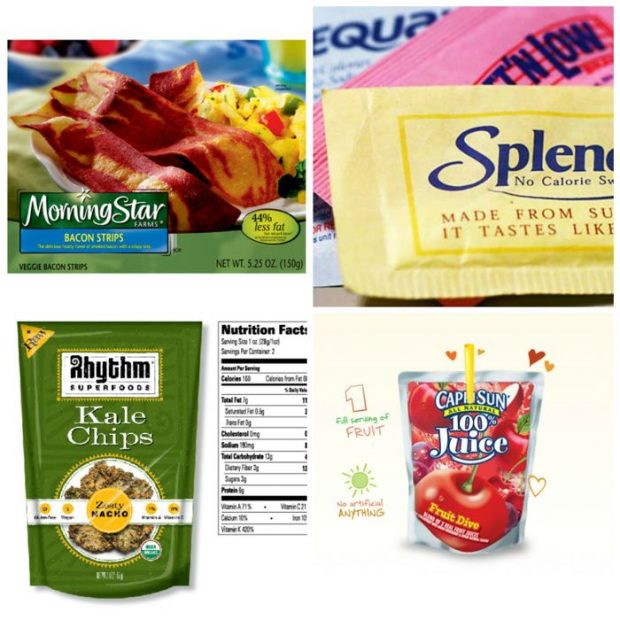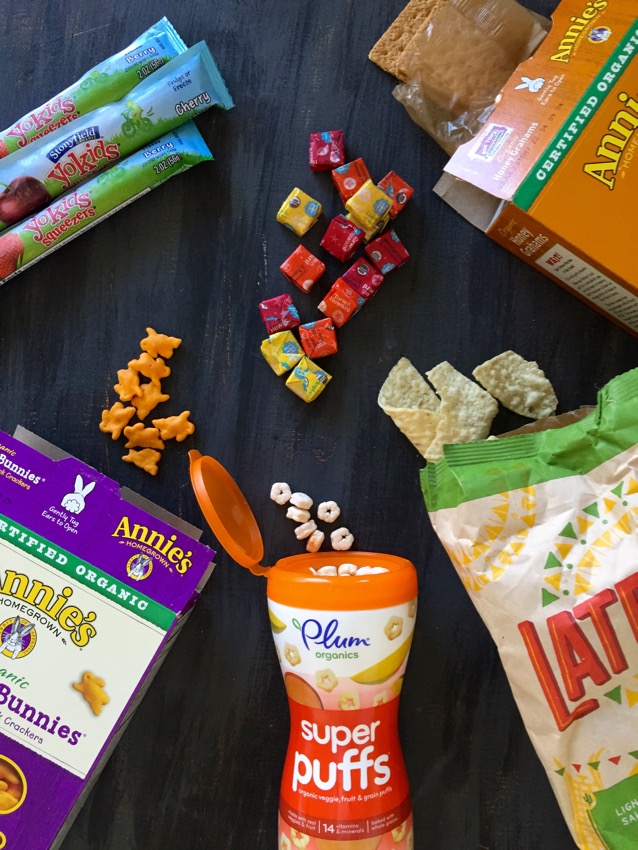Some things are obvious when it comes to losing weight: vegetables are healthier than ice cream, fruit is better than candy, a baked potato is healthier than potato chips.
Other things can be much more confusing. With science, media attention and food trends changing all the time, figuring out what will help or hinder weight loss has become quite a challenge.
Here’s a little guidance.
5 Foods to Avoid When Trying to Lose Weight
1. Artificially-sweetened foods. Eating calorie-free sweeteners might sound like a good idea when you’re trying to cut calories, but research has shown that people who eat artificially sweetened foods and beverages may actually have a harder time losing weight than those who don’t. Turns out the brain can’t be fooled: if you eat something that tastes sweet but doesn’t contain calories from sugar, you may end up craving or eating more high calorie foods later on.
2. Juice and smoothies. Our bodies recognize calories we eat more than calories we drink, so even though juice and smoothies can be nutritious, they won’t fill you up as much as if you ate all the ingredients in the juice or smoothie. The occasional juice or smoothie won’t impede your weight loss efforts, but regularly relying on these foods might sabotage your other good habits. Same goes for all other calorie-containing beverages.
3. Low-fat foods. Though dietary fat is a dense source of calories (9 calories per gram, as opposed to 4 calories per gram for protein and carbs), it supplies important nutrients, slows digestion and helps keep you satisfied after meals and snacks. Drastically reducing fat in your diet may make you crave more sugary foods or eat more in general because you aren’t feeling satisfied after eating. Foods advertised as low-fat or reduced-fat don’t necessarily have fewer calories, just less fat.
4. Trendy foods. Sure, some popular foods are very healthy: kale, chia seeds, beets, etc. But others – particularly processed snack foods made from “superfood” ingredients (think quinoa chips and kale-flavored soda) – are still just processed snack foods that should be eaten only occasionally. Just because a package has a healthy word or phrase on it does not mean the product is healthy or promotes weight loss.
5. Fake meat. This one is based on my own opinion that real, whole foods promote better body functioning than man-made processed foods. Yes, it’s a good idea for all of us to reduce meat intake both for health and environmental reasons. But I don’t recommend replacing meat with meat substitutes simply because they are so heavily processed and contain so many questionable additives. Instead, focus more on plant-based proteins (beans, lentils, tofu, soybeans, etc) and less on meat. When you do choose meat, look for organic and pasture-raised.







6 Comments
Liz @ The Lemon Bowl
April 6, 2014 at 6:29 pmI love this post and I’m laughing because I’m pretty sure my well-meaning husband bought those kale chips at Trader Joe’s last week!!! We don’t have one so it was a fun excursion. Too funny!
Amelia Winslow
April 8, 2014 at 10:25 amI’m sure it was a very good intention 🙂
Janice
May 5, 2014 at 6:07 pmHelp! I am trying to get my husband to stop drinking diet cokes, and stop using splenda in his coffee. He wants to see “real proof” that splenda is bad for you. He doesn’t believe anything on the internet, and wants to see a major, national source of research before he will consider making changes.
Also, I have switched to Truvia brand sweetener, thinking it is at least better than splenda. I pay a whole lot more for Truvia than my husband does for his Splenda, and he thinks I am getting ripped off. What is your opinion of Truvia as a healthy substitute for sugar, and if you don’t believe in it, what other options do you suggest?
Thanks,
Janice
Amelia Winslow
May 7, 2014 at 8:40 amHi Janice – Great questions. A lot of people are like your husband! I recommend checking out CSPI’s Chemical Cuisine list of sugar substitutes – http://www.cspinet.org/reports/chemcuisine.htm. Splenda is on the “Caution” list whereas Stevia is on the “Safe” list. If you click on each additive you get more info (including research-based facts).
My own opinion, however, is that it’s always better to use a real sweetener (aka with calories) like sugar, honey, maple syrup, agave, etc – mostly because when you eat calorie-free sweets, your body expects calories to come along with the sweet taste, and often you compensate for those calories later (plus more) by eating more. Calorie-free sweeteners have not been shown to help people lose weight, and they may actually contribute to weight gain. If you’re only using Truvia in your coffee, not a big deal, but if you’re using it throughout the day, you may want to try to adjust to the taste of unsweetened foods instead.
Gabriela
July 23, 2014 at 6:07 amAt least the Capri-sun in the picture seems to be 100% juice. In Switzerland you see people mainly drinking Orange Capri-Sun (10-12% juice). Whenever I see someone drink that slosh, I itch to advise them to just have a Tequila sunrise instead – contains more orange juice and at least you’re aware that it’s maybe not the healthiest choice (not for under agers, of course 😉 ).
Amelia Winslow
July 23, 2014 at 10:53 amHa! I might be tempted to do the same 🙂